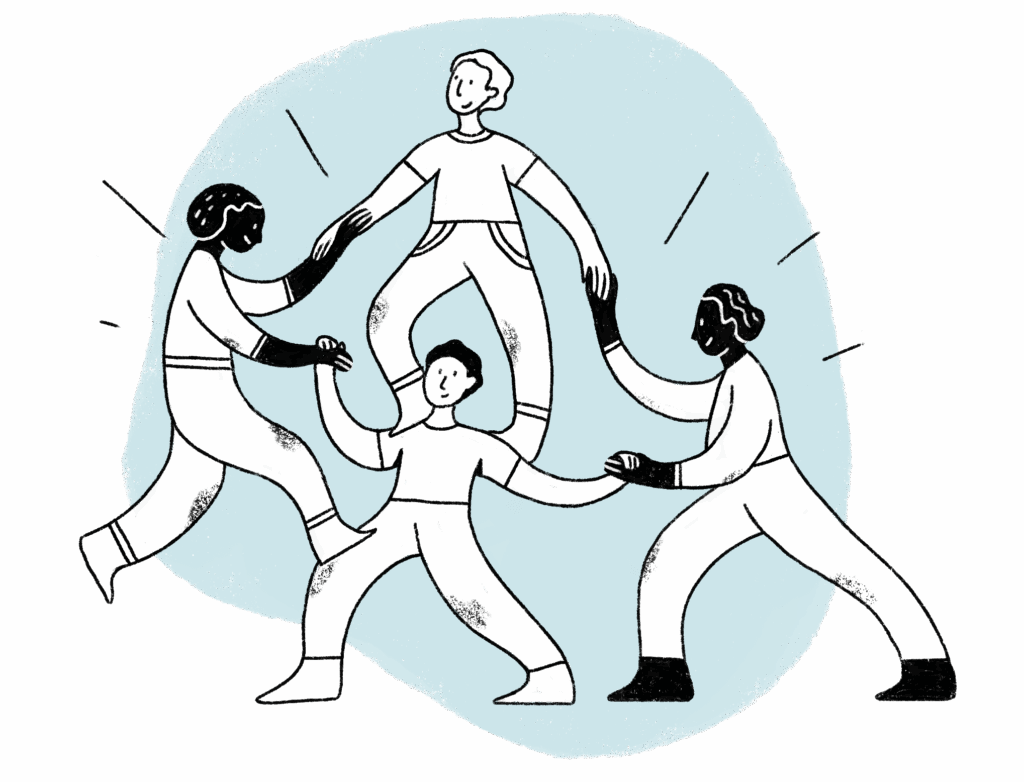
21 November 2025
8 min.
Human resource management
10 October 2025
6 min.

You’ve probably heard the saying: “People don’t leave jobs, they leave managers.”
It rings true—according to Gallup, nearly 69% of employees say their manager has a major impact on their mental well-being and their engagement at work (1). Simply put, leadership quality directly affects trust, belonging—and retention.
69%
of employees say their manager significantly influences their mental health and workplace engagement
In Quebec, studies show the same trend. Marie-Claude Gaudet, CRHA and Assistant Professor at HEC Montréal, highlights that emotional intelligence is tied not just to stronger leadership, but to better-performing teams (2). And when teams feel supported, people are more committed—and less likely to explore other options.
Because today, organizations are doing more than just competing for talent—they’re trying to keep it. In a market full of opportunities, people who don’t feel supported, valued, or understood will leave—sometimes without saying a word.
That’s why emotional intelligence is more than a “nice to have.” It’s a strategic advantage.
In a workplace where agility, authenticity, and psychological health are key, emotional intelligence stands out as a core leadership skill.
Leaders with strong emotional intelligence are able to:
The result? Stronger relationships, a healthier work culture, and more engaged, loyal teams.
Learn more about yourself so you can better engage others

Psychologist Daniel Goleman defines emotional intelligence through five key dimensions (3):
1. Self-awareness: Knowing how you feel and how it affects your actions
2. Self-regulation: Staying composed and thoughtful, even under pressure
3. Motivation: Staying driven and aligned with your values, even when things get tough
4. Empathy: Understanding how others feel and where they’re coming from
5. Social skills: Communicating clearly, resolving conflict, and earning trust
Professor Estelle Morin at HEC Montréal reminds us that emotional intelligence isn’t just about being nice. It also takes discernment, courage, and curiosity—especially when managing complex situations (4). These are all traits that bring leadership to life.
Ultimately, emotional intelligence is a performance and retention tool. It helps build teams where people feel seen, heard, and valued—three things that keep them engaged.
Boost well-being, resilience, and performance within your team

Feeling ignored, unsupported, or unrecognized is one of the top reasons people leave their jobs. But emotionally intelligent leaders build environments where people feel safe and cared for.
According to Harvard Business Review, leaders who work on their emotional intelligence create healthier, more motivating workplaces—greatly reducing turnover (5). Gallup adds that authentic recognition directly boosts loyalty and retention (6). In short, great leaders don’t just manage—they listen, support, and inspire.
Pierre Lainey, a lecturer at HEC Montréal, also talks about emotional contagion—a real phenomenon at work (2). A leader’s mood can quickly influence the entire team, affecting energy and morale (7). That’s why learning to manage your own emotions is key to supporting others effectively.
Here are some real-world leadership moments where emotional intelligence truly matters:
→ Listening first: A frustrated employee approaches you after a clumsy comment. Instead of jumping in to explain, you listen, rephrase, and acknowledge how they feel. That alone defuses tension and strengthens trust.
→ Navigating change openly: During a restructuring, you’re honest about how you’re feeling, while making space for your team to share too. The result? Less stress, more unity.
→ Recognizing meaningfully: You take time to thank someone for going the extra mile, naming exactly what made the difference. That kind of recognition goes a long way.
These small, thoughtful actions—done consistently—are what shape a healthy, engaging workplace culture.
Implement truly impactful recognition practices in your workplace

Absolutely. Like any skill, emotional intelligence can be learned and strengthened over time. Here are a few ways to get started:
✓ Know yourself better: Pay attention to your emotions, values, and what sets you off. Journaling or honest feedback can help.
✓ Manage your responses: Take a breath. Step back. Choose how you respond. That’s what builds trust—more than reacting on the spot.
✓ Really listen: Give the other person space. Rephrase what you hear. Validate how they’re feeling (and watch for body language!). This kind of listening builds strong, lasting connections.
By developing emotional intelligence, you’re not just becoming a better leader—you’re building real trust.
Emotional intelligence isn’t optional anymore. It’s a people-first retention strategy. In a world where employees want meaning and psychological safety at work, leaders who combine performance with humanity are the ones who stand out.
Because in the end, an organization’s success isn’t just about numbers. It’s about the people who choose to stay.
To support your team in developing the essential soft skills to build a healthy and engaging workplace climate, we offer flexible options to fit your reality:
→ Group training: Explore our team workshops and learning journeys
→ Individual training: Discover our accessible, practical, people-first e-learning
→ Training for your LMS: Use our content on your own learning platform
→ Corporate subscription: Give your team full access to our online learning platform
Pick the format that fits your goals and your professional reality! Take the quiz to see what solution fits best!
Discover the secrets of a high-performing and learning team

1. Gallup. (2023). State of the Global Workplace 2023: The Voice of the World’s Employees. Gallup.
2. Revue Gestion. (2022). Intelligence émotionnelle et empathie : des alliées précieuses en milieu de travail. Revue Gestion.
3. Goleman, D. (1995). Emotional intelligence: Why it can matter more than IQ. Bantam Books.
4. Morin, E. M. (2024). Quatre habiletés émotionnelles indispensables. Revue Gestion.
5. Druskat, V. U. (2025). Do you have an emotionally intelligent team? Harvard Business Review.
6. Gallup. (2024). Recognition and retention: New evidence of recognition’s long-term impact. Gallup.
7. Revue Gestion. (2025). Comprendre et encadrer la contagion émotionnelle en entreprise. Revue Gestion.
Blog

21 November 2025
8 min.

20 November 2025
4 min.

29 May 2025
5 min.